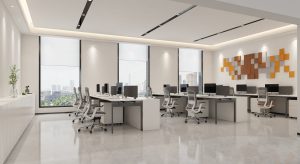As businesses across the Middle East continue to modernize and expand, the demand for high-quality, functional, and culturally appropriate office furniture has never been greater. Whether you're outfitting a new office in Riyadh or upgrading your workspace in Dubai, selecting the right furniture is critical to productivity, professionalism, and employee well-being.
In this guide, we’ll walk you through the key considerations for choosing office furniture that meets the specific needs of companies operating in the Gulf region.
1. Understand Your Space and Workflow
Before selecting furniture, evaluate your office layout. Is it an open-plan environment or segmented into private offices? Does your team collaborate frequently, or do they need quiet, focused spaces?
For collaborative environments, consider modular desks, mobile storage units, and lounge seating that encourage teamwork. For more traditional setups, invest in solid executive desks, partition systems, and sound-insulating furniture to maintain privacy and focus.
2. Prioritize Ergonomics
Comfort equals productivity. Office chairs with lumbar support, adjustable height, and breathable mesh backs are essential in warmer climates. Desks at the right height can prevent fatigue and improve posture, particularly for employees working long hours.
In Gulf countries where summers are extremely hot, breathable and heat-resistant materials can improve employee comfort significantly.
3. Choose Materials That Match the Climate
The Middle East’s climate is dry and hot for much of the year. Selecting furniture made from durable, heat-resistant materials ensures longevity and minimizes wear and tear.
Metal frames with powder coatings, high-pressure laminates, and engineered wood with moisture resistance are ideal for long-term use in the region. Upholstery should also be easy to clean and resistant to fading due to strong sunlight.
4. Reflect Local Aesthetics and Culture
Design matters—especially in a region where aesthetics and tradition often go hand-in-hand. Many Middle Eastern offices blend modern minimalism with subtle luxury. Choose furniture in warm wood tones, neutral palettes, and sleek silhouettes to create a professional yet inviting atmosphere.
For executive spaces, dark wood finishes, leather seating, and accent lighting can evoke prestige and authority while remaining culturally aligned.
5. Think About Growth and Flexibility
Many businesses in the UAE and Saudi Arabia are in growth mode. Selecting scalable furniture solutions allows you to adapt without constant reinvestment. Look for modular systems, stackable chairs, and desks that can be easily reconfigured as your team expands or relocates.
Furniture should not only serve your current needs but also support your future ambitions.
6. Ensure Quality and Reliability
Investing in durable, commercial-grade office furniture is essential for business buyers. Look for pieces that come with warranties, are compliant with international standards, and are made by manufacturers with experience in the B2B sector.
Reliable furniture reduces replacement costs and ensures your office maintains a professional appearance over time.
Conclusion
Choosing the right office furniture for your Middle Eastern business goes beyond aesthetics. It’s about creating an environment where teams thrive, culture is respected, and operations flow efficiently. At BecyFurniture.com, we understand the unique needs of businesses in the Gulf region. Our office furniture solutions combine quality, comfort, and local relevance—helping your workspace evolve with your goals.
Explore our latest collections or get in touch for tailored recommendations.





